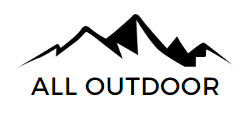When you’re in the great outdoors, a water shortage can turn a peaceful camping trip into a survival challenge. Lack of water can result in dehydration, impair your decision-making abilities, and make physical activities strenuous. To avoid such challenges, it’s crucial to understand how to prevent water shortage during camping. This guide will walk you through planning, conservation techniques, and what to do in case of an emergency.
Planning: Know Your Needs and Sources
Estimating Water Needs
- Activity Level: The amount of water you’ll need largely depends on your activities. High-energy activities like hiking and cycling require more water.
- Weather: Hot and dry climates will necessitate extra water for hydration and cooling.
- Duration: Factor in the length of your trip to calculate the total amount of water needed.
Identifying Water Sources
- Map Study: Prior to your trip, use maps and apps to locate natural water sources near your camping spot.
- Local Advice: Contact local park rangers or camping organizations to inquire about the availability and safety of water sources.
- Backup Plan: Always have a backup water source in case your primary source is unavailable or contaminated.
Conservation: Making the Most of Your Supplies
Efficient Consumption
- Sip, Don’t Gulp: Sipping water at regular intervals is more effective in maintaining hydration than gulping large amounts at once.
- Eat Water-rich Foods: Consuming fruits like watermelon or oranges can supplement your hydration efforts.
Optimized Usage
- Cooking: Plan meals that require less water to prepare.
- Cleaning: Use biodegradable soap and minimal water for washing dishes or taking quick «sponge baths.»
Emergency Measures: What to Do When Running Low
Rationing
- Prioritize: Limit water usage to essential activities like drinking and basic hygiene.
- Group Allocation: If in a group, centralize the water supply and allocate quantities to avoid accidental overuse.
Finding and Purifying Water
- Look for Natural Sources: Streams, rivers, and lakes can be good emergency sources, but you must purify the water by boiling it for at least one minute, or using water purification tablets or a reliable filter.
- Collect Rainwater: Use tarps or containers to collect rainwater, which is generally safe to drink without treatment.
Signs of Trouble
- Be aware of the symptoms of dehydration, which include dizziness, dry mouth, and dark urine. If anyone starts showing these signs, ration water and find a source as soon as possible.
Conclusion
Water is an essential element for any camping trip, and running out can pose serious risks. However, with adequate planning, conservation strategies, and emergency measures, you can prevent water shortage and ensure a safe and enjoyable outdoor experience. Always remember: «It’s better to have it and not need it than to need it and not have it.» Make water planning an integral part of your camping preparations.

